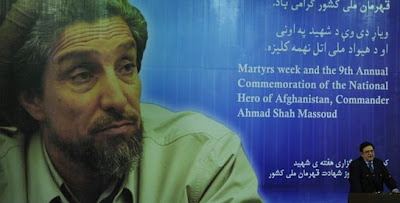Saturday, February 26, 2011
Lates News Afghan defence minister sees better Pakistan cooperation
WASHINGTON: The Afghan defence minister said Friday that security has ”vastly improved” in his country as Afghan and Nato forces have targeted militant leaders and prospects are brightening for cooperation with Pakistan in defeating the Taliban-led insurgency.
Afghanistan has long accused Pakistan of harboring the Taliban and plotting terrorist attacks although both countries are allies of the US in its fight against al-Qaida.
Defence Minister Rahim Wardak told The Associated Press on Friday ”the prospect for cooperation is much brighter” after meetings in recent months, involving Afghanistan, Pakistan and US officials.
Wardak said he also met in early February with Pakistan’s army chief Gen. Ashfaq Parvez Kayani on the sidelines of an international security conference in Munich, Germany.
”We are really hopeful there are very good relations between our governments, (between) our president, their president and prime minister. I think all this will have some impact,” he told The Associated Press. ”But we still have to see how it will be implemented.”
Wardak and Afghan Interior Minister Bismullah Mohammadi were in Washington this week for talks with US defence officials.
Originally, Pakistani officials were due to visit too, but the tripartite talks were shelved amid a disagreement between the US and Pakistan over the detention of a CIA employee accused of murdering two Pakistanis. Washington says the employee should have diplomatic immunity.
Speaking earlier Friday to a seminar at the United States Institute of Peace think tank, both Afghan officials said security in Afghanistan was ”vastly improved” as increased Nato forces —part of a US surge before a drawdown of forces begins in this July —had stepped up operations with Afghan forces.
Their comments praising Nato raids were at odds with Karzai, who on Thursday claimed that 150 civilians had been killed in recent days by militants as well as international troops whom he said were employing an ”unsuccessful” war strategy.
Robert Watkins, departing deputy UN special representative in Afghanistan, also said this week that security is the worst in a decade and the world body is virtually shut out of two-fifths of the country.
Mohammadi said night raids —sometimes criticized for exacting civilian casualties —had dealt a ”back-breaking blow” in taking down Taliban leaders, mid and low-level militants and drug dealers.
Wardak asserted that government control had been established in ”hearts of enemy territory” in Kandahar and Helmand provinces in the volatile south, although there could be a ”very bloody year” of fighting ahead.
Both officials said Pakistan’s cooperation to move against insurgent ”safe havens” and Taliban leaders was essential for winning.
Wardak attributed the apparent change in Pakistan’s attitude toward cooperating with Afghanistan to its internal situation.
David Barno, a former commander of US forces in Afghanistan, said that on a recent visit to Pakistan he detected that Islamabad was beginning to believe the US will have a long-term presence in the region rather than withdraw in a hurry, prompting it to reconsider its ”hedging” strategy —of reportedly still backing Afghan Taliban.
While the US plans to start drawing down forces from July this year, the Nato force it leads is committed to a gradual transfer of security responsibility to expanding numbers of Afghan army and police by 2014.
Barno said he hoped that even after 2014, about 25,000 to 30,000 international troops would stay on to fight al-Qaida and mentor Afghan forces.
Subscribe to:
Post Comments (Atom)

No comments:
Post a Comment